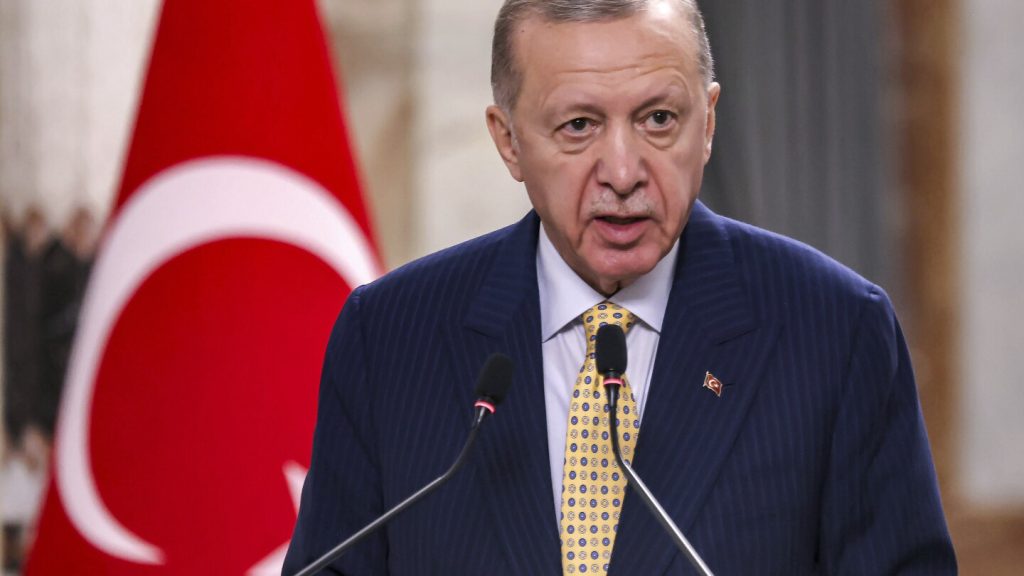In response to Israel’s ongoing military action in Gaza, Turkey has suspended all imports and exports to the country. The Turkish Trade Ministry announced the halt, which covers all products, in an effort to pressure Israel to allow the flow of humanitarian aid to Gaza. This move is described as the “second phase” of measures against Israel, following last month’s restriction of exports of 54 types of products. Israeli Foreign Minister Israel Katz accused Turkey of blocking Israeli imports and exports from Turkish ports, prompting him to seek alternatives for trade with Turkey.
Turkish President Recep Tayyip Erdogan has faced pressure at home to halt trade with Israel, following criticism of his government’s double standards in accusing Israel of war crimes while maintaining commercial relations. Turkey recognized Israel in 1949, but tensions between the two countries have fluctuated under Erdogan’s leadership. Erdogan has intensified his criticism of Israel, particularly after its military offensive in Gaza, and has voiced support for the Hamas militant group, which is classified as a terrorist organization by Israel, the US, and the EU.
Foreign Minister Hakan Fidan announced that Turkey would join a legal case filed by South Africa against Israel at the International Court of Justice, accusing Israel of breaching the Genocide Convention with its military offensive against Hamas. Turkey plans to intervene in the case and submit a formal request soon. Israel denies that its military campaign in Gaza constitutes a breach of the Genocide Convention. The escalating tensions between Turkey and Israel come at a time when Erdogan’s government is facing challenges at home, following setbacks in local elections in March.
The suspension of imports and exports between Turkey and Israel adds another layer to the longstanding tensions between the two countries. Turkey’s decision to block trade with Israel is seen as a direct response to Israel’s military actions in Gaza and its handling of the humanitarian situation in the region. The move is likely to further strain relations between the two nations, which have a history of diplomatic conflicts and differences in their approaches to regional issues. As Turkey expands its measures against Israel and seeks international legal action, the situation in the Middle East remains volatile, with potential implications for global security and diplomacy.
The ongoing conflict between Turkey and Israel underscores the complex dynamics in the Middle East, where regional powers vie for influence and seek to assert their interests. Turkey’s decision to suspend imports and exports to Israel is part of a broader strategy to pressure Israel to change its policies in Gaza and allow the flow of humanitarian aid to the region. The involvement of other countries, such as South Africa, in legal proceedings against Israel further complicates the situation and highlights the international dimensions of the conflict. As tensions continue to escalate, the humanitarian crisis in Gaza worsens, underscoring the urgent need for diplomatic solutions and international cooperation to address the root causes of the conflict.


